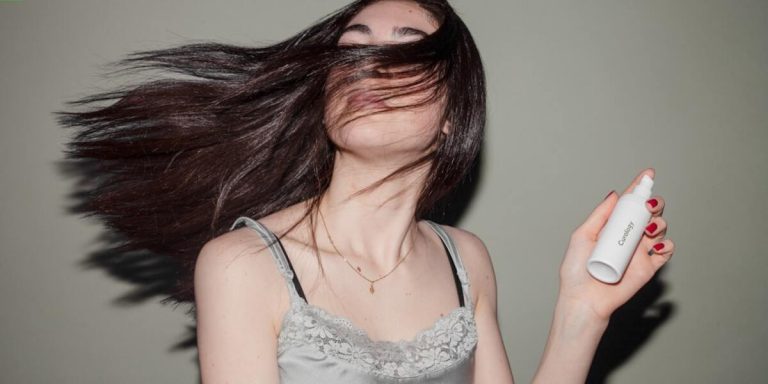Does Progesterone Cause Hair Loss? Unveiling the Facts Behind Hormones and Hair Health
In the labyrinth of biological responses that can culminate in hair loss, hormones play a central role. A slew of queries often bubbles up from those grappling with thinning follicles – perhaps one of the most common is “does progesterone cause hair loss?” To address this concern directly would be to oversimplify an intricate process.
While it’s established that fluctuations in hormone levels can impact our bodily functions significantly, pinning down how exactly they affect our manes demands a deeper dive into endocrinological interactions and their implications on overall health conditions. The link between these nuances and hair vitality will serve as the focal point for this exploration.
Did you know?
A lesser-known fact is that elevated levels of progesterone can cause hair to enter the telogen, or ‘resting’, phase faster. This could result in increased shedding and noticeable hair loss.
Understanding the Hormonal Impact on Hair Loss
In discussing hair loss causes, an essential factor to consider is the hormonal impact. A common inquiry people have often revolves around progesterone – does it cause hair loss? The answer lies in understanding how hormones operate and interact with our body systems.
Progesterone, a steroid hormone involved in the female menstrual cycle and pregnancy, does not directly cause hair loss. However, it can indirectly affect follicle health by interacting with other hormones like DHT (Dihydrotestosterone). Fluctuations or imbalances in these hormones due to conditions such as PCOS (Polycystic Ovary Syndrome), menopause or stress events might lead to unusual shedding or thinning of the scalp hair.
On another level, some forms of contraception that contain synthetic progestins can mimic real progesterone’s effects on our bodies—sometimes leading to side effects similar to what you’d expect from high testosterone levels including potential changes in hair growth patterns. While this isn’t definitive evidence linking direct causation between progesterone and losing locks—it paints quite a vivid picture on hormonally-driven baldness scenarios.
Does Progesterone Play a Role in Hair Shedding?
Indeed, progesterone does play a significant role in hair shedding. Let’s break down how exactly this hormone impacts the health and vitality of your precious locks.
Firstly, it is crucial to know that hormones are responsible for regulating almost everything in our bodies – including hair growth. Hormones such as estrogen and testosterone have been on the research radar regarding their relationship with hair loss or growth; however, new studies suggest that we should not overlook progesterone either.
In fact, a drop in levels of Progesterone – which is typically identified as a female sex hormone but exists equally importantly in men too – can kick off excessive shredding. The situation often tends to occur after childbirth when dramatic hormonal fluctuations take place; nonetheless “Does Progosterone cause Hair Loss?” Yes! A fall could lead to devastating impacts even outside maternity circumstances for both genders alike!
Aiming at reducing any misconception about ‘the blame game’, It’s important then—instead—to understand what happens biologically under these changing tides known better by scientists today than ever before since 2023 kicked underway.
Estrogen vs. Progesterone: The Effects on Hair Growth
Hormones play a significant role in our body, including influencing hair growth. Estrogen and progesterone are two hormones that have noteworthy effects on this process. But can an imbalance of these hormones cause hair loss?
Let’s delve deeper.
Estrogen is known as the ‘hair friendly’ hormone. High levels of estrogen promote lush growth by extending your hair’s natural life cycle stages – Anagen (growth phase) and Telogen (resting phase). When estrogen levels are high, more hairs stay in their growing stage, resulting in thicker locks overall.
Progesterone tends to slow down cell development along with shortening your scalp follicles’ intake time during Anagen phases which ultimately leads to shorter lengths due of less absorbed nutrients over time unlike Estrogens whose dominance prolongs absorption period ensuring longer lifespan hence lengthier coverage.
Diving into Nutritional Deficiencies and Their Link to Hair Thinning
Hair loss often comes as a surprise and can be quite distressing. While various factors contribute to hair thinning, nutritional deficiencies stand at the forefront of most discussions related to this concern. Research increasingly correlates inadequate nutrition with poor scalp health and consequent hair fall.
In the context of hormones, it’s important not just to consider testosterone – traditionally associated with pattern baldness – but also progesterone level fluctuations that might trigger or exacerbate hair thinning issues. Progesterone is usually known for its role in menstrual cycles and pregnancy among women; however, it impacts more than reproductive functions alone.
Hormonal imbalances—including those involving progesterone—can interrupt your body’s regular processes causing deviation from optimal functioning leading to symptoms such as weight changes, mood swings—and yes—hair loss too! It’s necessary then that we understand what our bodies communicate through these signals like ‘thinning locks’; they could very well indicate underlying nutritional shortcomings requiring attention.
While many may wonder “does progesterone cause hair loss?”, there isn’t a straightforward answer as experiences vary based on individuals’ diverse physiological makeup thus emphasizing customization during diagnosis and treatment planning.
It becomes essential then not only prioritizing medical insights but complementing these efforts by focusing holistically on diet quality—a potential game changer much within our control when dealing with such complex health challenges like unanticipated ‘crowning’ concerns due possibly linked hormonal imbalances combined perhaps caused by neglected nutritional gaps.
How Iron, Zinc, and Protein Levels Affect Your Locks
Understanding the vital role of specific nutrients – namely iron, zinc, and protein – in maintaining healthy hair is crucial. The deficiency of these can often lead to a condition known as telogen effluvium where your hair prematurely enters into the shedding phase.
Iron plays an essential part in producing hemoglobin in your blood which carries oxygen for the growth and repair of cells including those that stimulate hair growth. When you are low on iron, less oxygen is delivered to your cells that could result in slowed or stopped hair growth leading to thinning locks over time.
Zinc helps promote tissue regeneration and repair while also keeping oil glands around follicles working correctly. Therefore, inadequate zinc intake may cause changes at both cellular and structural levels within the follice causing substantial disruption resulting subsequently into potential loss strands.
Protein significantly contributes by providing structure to our tresses since it forms keratin – what most know as primary material from which strand grows out. A diet scarce with proteins might make you lose more than what’s normally considered regular daily shedding quantity thereby making noticeable overall volume reduction.
Vitamins Affecting Scalp Health and Hair Stability
In the quest to understand hair loss causes, it’s critical not just to look outside but inside too. One such interior factor is our diet and vitamin intake. Our body needs certain vitamins for optimal scalp health and stable hair growth.
Vitamin A sits at the forefront of these essential nutrients which are crucial for cell growth, including your hair cells – arguably one of the fastest-growing tissues in our bodies! However, moderation is key; excessively high levels can cause mishaps like hair thinning or even complete baldness by accelerating follicle overactivity that later leads them into early retirement!
The B group vitamins carry a lot on their shoulders when it comes down to ensuring robust scalp health. Aside from producing red blood cells carrying oxygen throughout your body (a right old treat for those hungry little follicles! ), they also play a major role managing conditions affecting normal hair stability – does progesterone cause hair loss?
Not alone essentially! But when B6 gets low while estrogen ramps up, we might face shedding issues!
We all know how effective Vitamin C could be battling common colds due its antioxidant properties; no wonder then that this superstar goes way beyond by helping fight oxidative stress causing detrimental effects on one’s treasured tresses too.
Low iron may seem trivial but considering its connection with Anemia—an underlying condition often manifesting as diffused telogen effluvium—makes you think twice about skipping those greens or steaks now doesn’t it?
Exploring Medical Conditions Associated With Alopecia
First, let’s delve into the complex relationship between alopecia and medical conditions. Alopecia is not a disease but rather an umbrella term for hair loss; it’s worth noting that numerous reasons can trigger its onset – ranging from nutritional deficiency to genetic predisposition. However, one aspect causing significant buzz in current research circles involves hormonal imbalances related specifically to progesterone.
Now as we dig deeper, there have been findings linking lower levels of progesterone –a hormone vital for several bodily functions– with increased incidences of hair loss. It appears that optimal functioning follicles rely heavily on a delicate hormonal balance where both adequate estrogen and progesterone play critical roles. Disruptions within this tight-knit duo seem capable of ushering in unwelcome cycles of thinning along the scalp line.
Let us now unravel why such imbalance occurs? Well attributed causes include varying life stages like perimenopause or menopause which see drastic plummeting levels of these hormones; certain autoimmune diseases often come hand-in-hand with irregular concentration shifts too! More intricate factors involve certain medications potentially triggering sudden depletions inadvertently speeding up baldness processes due to sheer biological stress responses.
However, before you rush off suspecting your receding mane down solely to low progesterone count remember: There are diverse facets at play when scrutinizing alopecia’s root origins hence always seek professional advice ensuring informed decisions prevail towards restorative paths ahead!
Thyroid Disorders: When Hormones Lead to Follicle Fallout
Thyroid disorders are a major medical condition linked to hair loss, and perhaps one of the most confusing culprits. Our thyroid gland is responsible for producing hormones that regulate metabolism, heart rate, mood, temperature among other things. But did you know it can also affect your strands?
It’s true!
An overactive or underactive thyroid can cause havoc with hair health; they alter our body’s production of certain proteins which directly impact follicle growth cycles. Hypothyroidism (underactive) causes insufficient levels of thyroxine leading to dryness and brittleness in your tresses while hyperthyroidism (overactive) often creates excessive sebum production triggering alopecia.
Now onto another hormone having substantial sway on scalp well-being – progesterone! You may wonder “does progesterone cause hair loss?” The answer might surprise you as it’s not as straightforward as we wish.
In essence, both low and high levels of this sex hormone could contribute significantly towards balding depending upon individual bodily responses but conventionally speaking low level is more problematic due to its counteracting effect against testosterone – infamous for converting into DHT(Dihydrotestosterone), highly damaging for follicles causing miniaturization eventually resulting in shedding.
Autoimmune Contributions to Unwanted Hair Loss
Alopecia, more commonly known as hair loss, possesses a wide array of triggers; one being autoimmune contributions. These diseases tend to wreak havoc on our immune system which mistakenly attacks our own body cells – including those vital for hair growth.
One key player in this arena is an infamous hormone named progesterone. It might be surprising but indeed the question arises: does progesterone cause hair loss? The answer is not clear cut or binary and delves deeply into intricate physiological mechanisms at play.
Progesterone primarily identified with its role in menstrual cycle regulation and pregnancy can become a villain if levels are imbalanced. An excess of this hormone around your follicles may lead to their miniaturization causing them to shrink over time eventually hindering healthy regrowth cycles leading us down the familiar path of thinning and baldness.
However, it’s worth mentioning that while higher concentrations could contribute towards alopecia, falling standard ranges rarely trigger severe cases themselves unless paired with other factors such as genetic predisposition or stresses both emotional and physical imposed upon us by modern life demands.
While combating high estrogen levels via increasing your natural production definitely seems desirable considering Progesterones anti-estrogen properties it comes bearing adverse effects under certain scenarios adding unwanted complexity into mix where maintaining equilibrium between these hormones becomes imperative .
Conclusion
In conclusion, the question “Does progesterone cause hair loss?” isn’t as black and white as it may seem. Hormonal imbalances certainly play a pivotal role when it comes to matters of follicular health, but zeroing in on one hormone like progesterone is an oversimplified way of looking at such an intricate matter.
Don’t hesitate to delve deeper into this topic or explore other potential causes for your hair woes right here on our website. From dietary influences to genetic predispositions, we have a treasure trove full of insightful articles ready and waiting just for you! Consider us your go-to resource center that deconstructs complicated topics into easily digestible information surrounding all things ‘Hair Loss Causes’.







